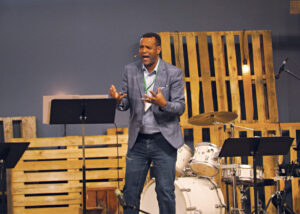They can be necessary, but they are usually devastating. Church splits, in my experience, are not often talked about in Christian circles, yet they are not uncommon.
Church splits are necessary for many different reasons, including:
- Splitting to put an end to hostile environments of differing opinions;
- When a church grows to be too big and must split in order to grow further;
- When a congregation deems the pastor, or a group of church leaders, as detrimental to the functioning of the church and must split off from those leaders.
There are also many biblical reasons to leave a church, such as if the church’s leadership is preaching bad theology, sharing false teachings or misusing church funds.
In 2019, the church that my family and I have attended for almost 10 years divided. The split left me confused and angry.
While my family did not leave the church, almost half of the congregation did. It was painful to watch families leave one by one, Sunday after Sunday. Friendships and relationships I’d had for years were essentially broken. I felt betrayed.
Church no longer felt like the safe and loving home that I had once known. The people who made it home weren’t there anymore, and that was difficult to get used to.
When there is an issue in a church that is tumbling towards a split, people usually see two sides—but there is also a third side. In my case, on each opposing side, there were people whom I trusted, loved and respected. But who was correct? Who should my family and I trust and stand beside?
When you are not on either side of a problem, you have nothing to fuel your stance, so you feel lost and confused. I was on that third side.
After the initial split happened, it left me to look inwards and ask myself this question: “Do I only go to church because of the people and friendships I have there?”
Fellowship and community are important aspects of the Christian church, but should they have been the only reasons I got up and went to church? The answer, I concluded, was no.
After reaching this conclusion, I realized that I needed to rethink how I view church. Church should not be seen as a social gathering, but a place where friends grow together in the Holy Spirit, worship together, feel convicted together, and create a space of trust and love through Christ.
Sometimes, for reasons that are different for everyone, the church that someone attends doesn’t fulfil these aspects, and that is okay. Who am I to question the motives and reasons for church members wanting to leave? Who am I to question how God moves and speaks to them?
Whatever the reason a church divides, the division still affects everybody involved. These divisions can ruin lifelong friendships, break trust and cause betrayal.
I have since come to terms with this event in my life, but I still mark it as a difficult and confusing experience that I wouldn’t wish on anyone.
It’s difficult to talk about things that have hurt us or caused us to feel betrayed, but if we were to talk more about our experiences with church splits together, I believe it wouldn’t always feel like such an isolated experience. It could give us the sense of community and fellowship that we may feel we have lost.
Grace Bruinooge is a third-year student at Canadian Mennonite University in Winnipeg, majoring in communications and media. She was Canadian Mennonite’s social-media intern this past summer.
Related article:
What if we stayed together?








Leave a Reply
You must be logged in to post a comment.